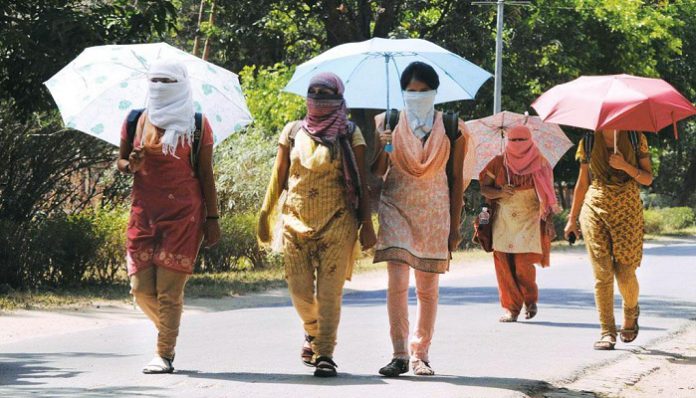
Chandigarh: Heat wave is defined based on the temperature thresholds over a region in terms of actual temperature or its departure from normal. Heat wave is considered if maximum temperature of a station reaches at least 40 C or more for Plains and at least 30 C or more for Hilly regions.
BKU News : Rakesh Tikait ਦੀ ਛੁੱਟੀ? ਕਿਸਾਨਾਂ ਦਾ ਐਕਸ਼ਨ,CM Mann ਨੇ ਬਾਗੋ-ਬਾਗ ਕਰਤੇ ਲੋਕ | D5 Channel Punjabi
Heat Wave is when departure from normal is 4.5 C to 6.4 C or actual maximum temperature ≥ 45C Severe Heat Wave is when departure from normal is >6.4 C or when actual maximum temperature is ≥47 C. North western Indian states of Punjab, Haryana, Chandigarh, Uttar Pradesh and Rajasthan are especially prone for Heat wave conditions.
Bathinda RTO Office : ਦਫ਼ਤਰ ’ਚ ਬੈਠੇ ਸੀ ਬਾਦਲਾਂ ਦੇ ਬੰਦੇ! ਉੱਤੋਂ ਪਹੁੰਚ ਗਿਆ Transport Minister
The health impacts of Heat Waves typically involve dehydration, heat cramps, heat exhaustion and/or heat stroke.
The signs and symptoms are as follows:
i. Heat Cramps: Ederna (swelling) and Syncope (Fainting) generally accompanied by fever below 39*C i.e.102*F.
ii. Heat Exhaustion: Fatigue, weakness, dizziness, headache, nausea, vomiting, muscle cramps and sweating.
iii. Heat Stoke: Body temperatures of 40*C i.e. 104*F or more along with delirium, seizures or coma. This is a potential fatal condition.
The measures one should take to minimize the impact during the heat wave are: –
1. Avoid going out or working in the sun, especially between 12.00 noon and 3.00 p.m.
2. Drink sufficient water and as often as possible, even if not thirsty.
3. Wear lightweight, light-colored, loose, and porous cotton clothes.
4. Avoid strenuous activities when the outside temperature is high.
5. While travelling, carry water with you.
6. Avoid alcohol, tea, coffee and carbonated soft drinks, which dehydrates the body.
7. If you work outside, use a hat or an umbrella and also use a damp cloth on your head, neck, face and limbs.
8. Do not leave children or pets in parked vehicles.
9. If you feel faint or ill, see a doctor immediately.
10. Use ORS, homemade drinks like lassi, lemon water, buttermilk, etc. which helps to re-hydrate the body.
11. Keep animals in shade and give them plenty of water to drink.
12. Keep your home cool, use curtains, shutters or sunshade and open windows at night.
13. Use fans, damp clothing and take bath in cold water frequently



